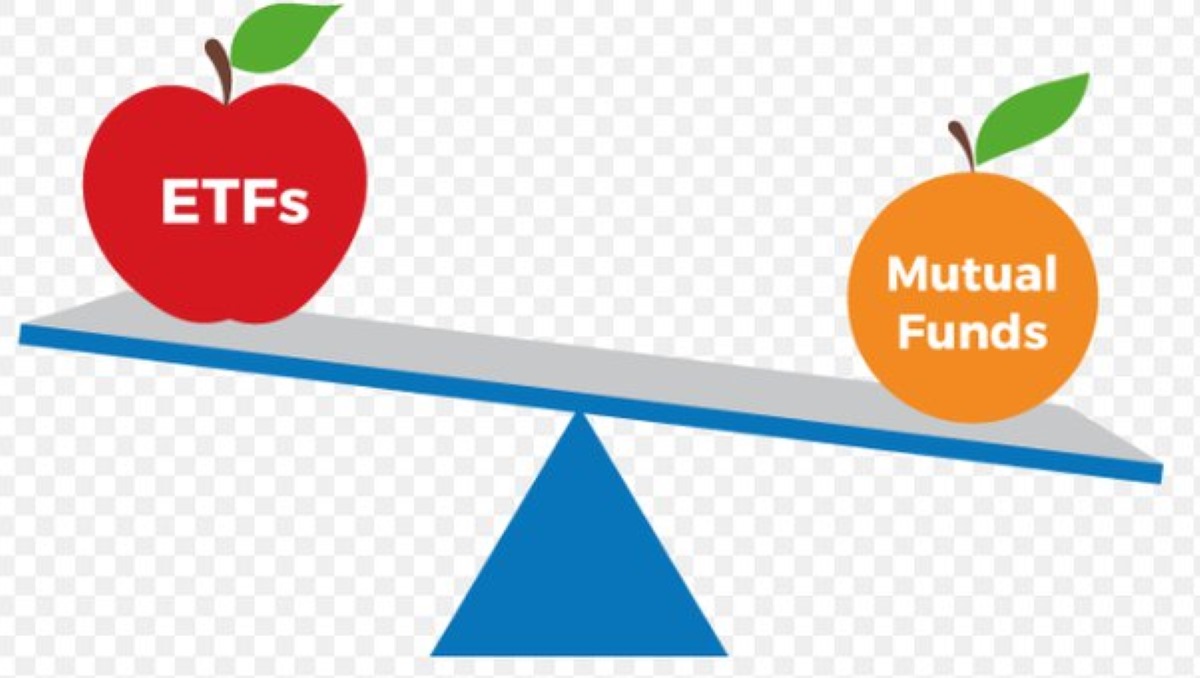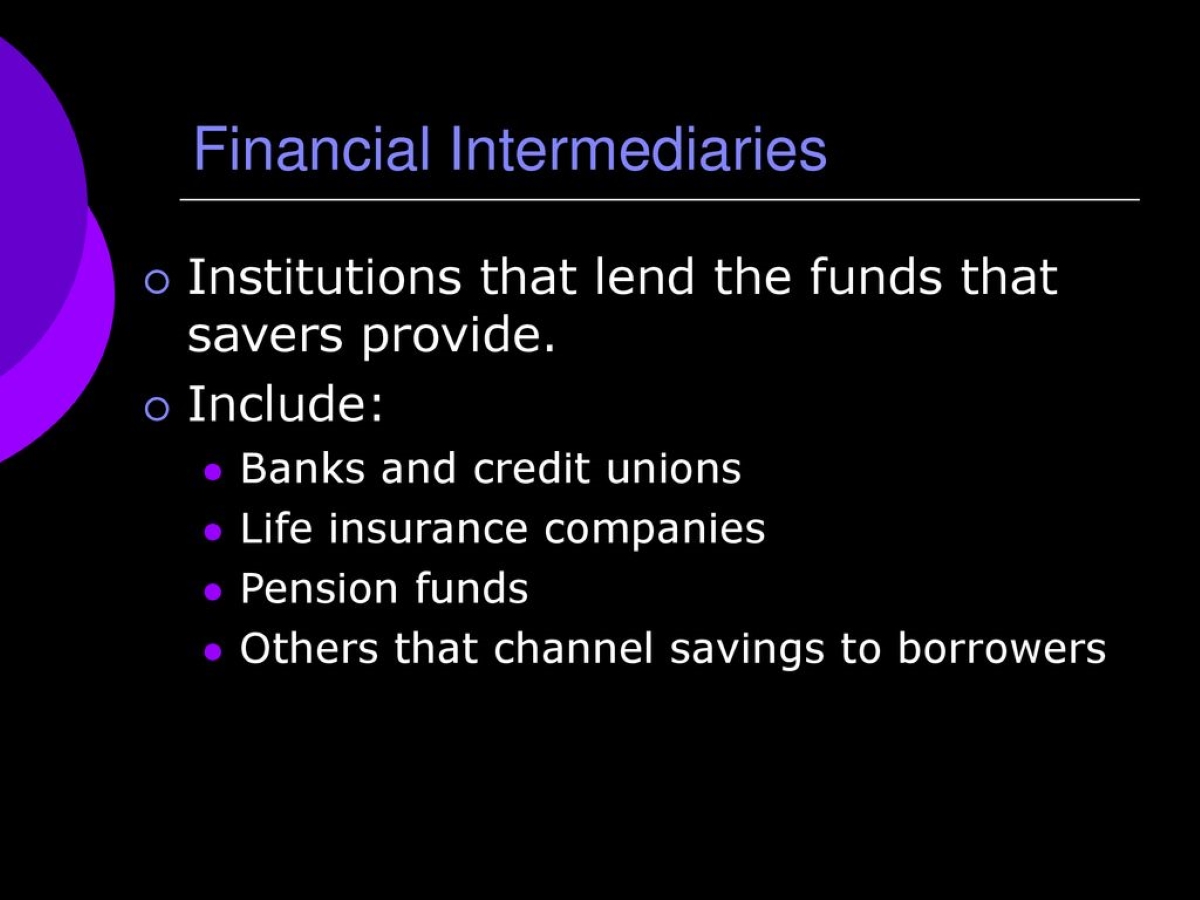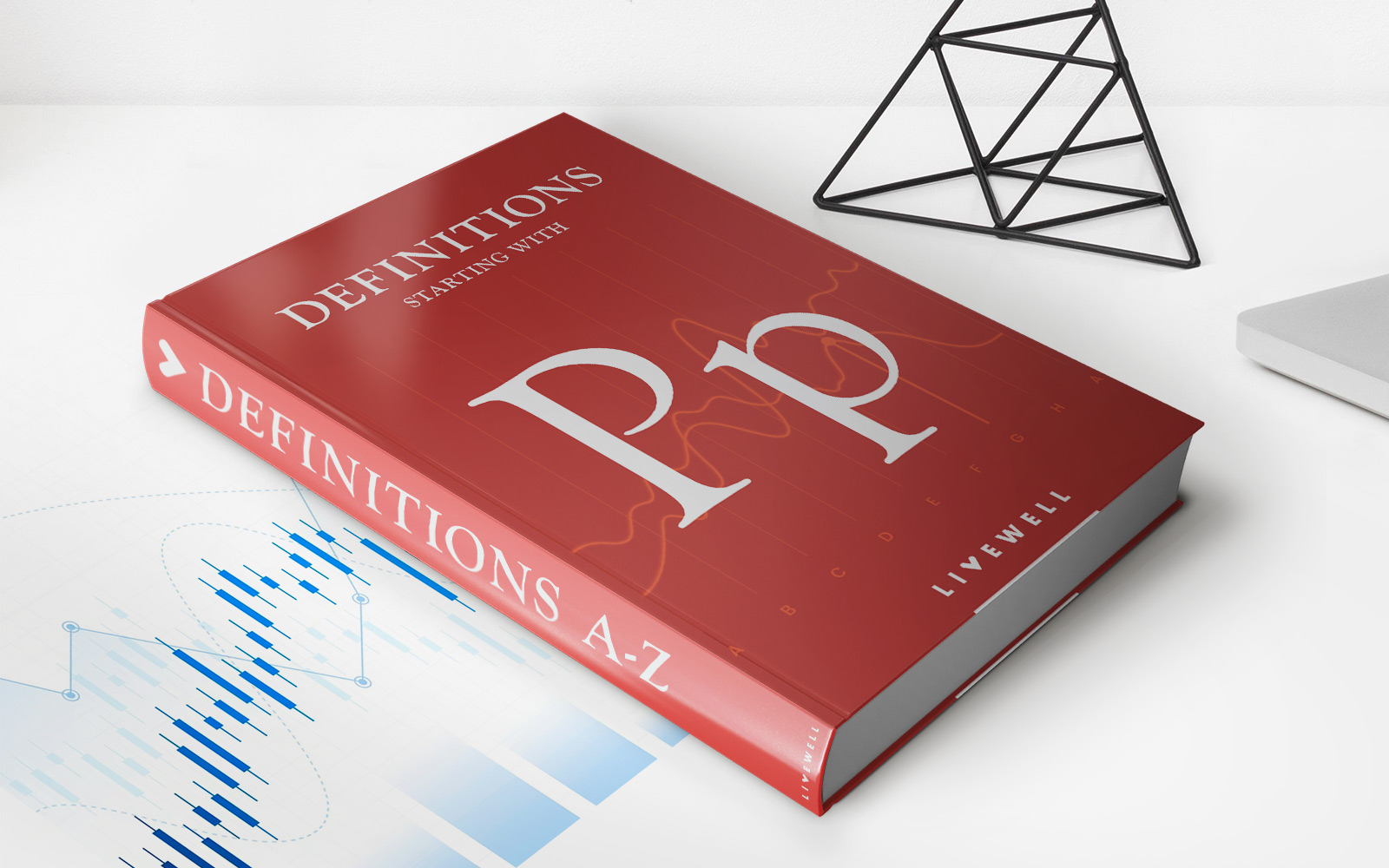

Finance
How Long For Mutual Funds To Settle
Modified: February 21, 2024
Find out how long it takes for mutual funds to settle and get your finances in order. Explore our comprehensive guide for all your finance-related queries.
(Many of the links in this article redirect to a specific reviewed product. Your purchase of these products through affiliate links helps to generate commission for LiveWell, at no extra cost. Learn more)
Table of Contents
Introduction
When it comes to investing in mutual funds, many investors not only focus on the potential returns but also the settlement period. The settlement period refers to the time it takes for an investor’s trade to be processed and finalized, including the transfer of funds and the allocation of units in the mutual fund. Understanding the settlement period is crucial for investors to have a clear picture of when their transactions will be completed and when they can expect to receive their funds or units.
Mutual funds are investment vehicles that pool money from multiple investors to invest in a diversified portfolio of securities such as stocks, bonds, and money market instruments. They are managed by professional fund managers who make investment decisions based on the fund’s objectives. One of the key aspects of investing in mutual funds is the buying and selling of units, which can be done through various channels such as directly with the fund house, through distributors, or online platforms.
The settlement period for mutual funds varies depending on the type of transaction, the fund house, and the market in which the fund operates. In most cases, the settlement period ranges from one to three business days. During this time, the mutual fund shares are bought or sold at the prevailing net asset value (NAV) and the transaction is processed through central securities depositories and clearinghouses.
There are several factors that can affect the settlement period for mutual funds. Market conditions, regulatory requirements, and the complexity of the transaction can all contribute to longer settlement times. Additionally, the fund house’s internal processes, such as reviewing and verifying trade details, can also influence the settlement period.
The settlement period for mutual funds is an important consideration for investors for several reasons. First, it determines when investors will have access to their funds or units. If an investor wants to sell their mutual fund units to generate cash or invest in other securities, a shorter settlement period allows for quicker access to those funds. On the other hand, if an investor wants to purchase mutual fund units, a shorter settlement period allows for quicker allocation of units and the potential to capture a specific NAV.
However, the settlement period also poses challenges for investors and fund houses. Market volatility, large trading volumes, and complex transactions can create delays in settling trades, leading to potential risks and uncertainties. Moreover, fund houses need to ensure that all trades are accurately processed and settled within the prescribed timeframe to maintain investor trust and comply with regulatory requirements.
Definition of Mutual Funds
Mutual funds are investment vehicles that pool money from multiple investors to invest in a diversified portfolio of securities such as stocks, bonds, and money market instruments. They are managed by professional fund managers who make investment decisions based on the fund’s objectives.
Essentially, when an investor buys units of a mutual fund, they become a shareholder in the fund and indirectly own a portion of the underlying assets. This allows individuals with relatively small amounts of money to gain access to a professionally managed and diversified investment portfolio that they might not be able to create on their own.
Mutual funds are structured in such a way that they offer investors the opportunity to invest in a wide range of asset classes, geographic regions, and investment styles. This variety allows investors to choose funds that align with their risk tolerance, investment objectives, and time horizon.
There are different types of mutual funds available to cater to various investor preferences. These include equity funds, which invest in stocks and aim for long-term capital appreciation; bond funds, which invest in fixed-income securities and provide regular income; money market funds, which invest in short-term debt securities and offer stability and liquidity; and balanced funds, which combine both stocks and bonds to provide a balanced portfolio of income and growth.
Another type of mutual fund is the index fund, which aims to replicate the performance of a specific market index, such as the S&P 500. These funds provide investors with broad market exposure and generally have lower expense ratios compared to actively managed funds.
Furthermore, mutual funds offer investors the benefit of professional portfolio management. Fund managers employ rigorous research and analysis to make investment decisions, constantly monitoring market trends, economic indicators, and company fundamentals. This expertise can potentially lead to higher returns compared to individual investors managing their own portfolios.
In addition to professional management, mutual funds provide investors with liquidity. Most mutual funds allow investors to buy or sell their units on any business day at the fund’s net asset value (NAV). This means that investors have the flexibility to enter or exit their positions, providing them with the ability to rebalance their portfolios or access their invested funds as needed.
Overall, mutual funds are a popular investment option due to their diversification, professional management, liquidity, and accessibility. They offer individuals the chance to participate in various markets and asset classes, making them a suitable choice for both novice and experienced investors.
Settlement Period for Mutual Funds
The settlement period for mutual funds refers to the timeframe it takes for an investor’s trade to be processed and finalized. It includes the transfer of funds from the buyer to the seller and the allocation of units in the mutual fund. The settlement period typically ranges from one to three business days, although it can vary depending on the type of transaction, the fund house, and the market in which the fund operates.
During the settlement period, various processes take place to ensure the smooth execution of mutual fund transactions. These processes involve transferring funds between bank accounts, verifying trade details, and updating unit balances in the investor’s account.
The settlement period begins when the investor places an order to either buy or sell mutual fund units. If an investor wishes to purchase units, the settlement period begins when the order is placed, and the funds are deducted from the investor’s bank account. On the other hand, if an investor wishes to sell units, the settlement period begins when the order is placed, and the units are blocked in the investor’s account.
Once the order is placed, it is transmitted to the mutual fund house or its designated registrar and transfer agent (RTA) or transfer agent. The fund house or RTA validates the trade details, such as the investor’s identity, investment amount, and the NAV at which the units are to be bought or sold.
Next, the settlement process involves transferring funds from the investor’s bank account to the fund house’s bank account. This fund transfer is carried out through payment gateways or electronic clearing systems. The fund house reconciles the incoming funds with the investor’s trade details to ensure accurate and timely settlement.
Simultaneously, the allocation of units takes place during the settlement period. If an investor is buying mutual fund units, the allocated units are credited to the investor’s account based on the prevailing NAV. Conversely, if an investor is selling units, the allocated units are debited from the investor’s account.
Once the funds are successfully transferred, and the units are allocated, the settlement process is considered complete. The investor’s bank account is credited with the proceeds from the sale of units, or the investor’s account is debited with the purchase amount.
It is important to note that the settlement period may differ for different types of transactions within the mutual fund industry. For example, the settlement period for lump-sum investments may be shorter compared to systematic investment plans (SIPs), which involve investing a fixed amount at regular intervals. SIPs may have a longer settlement period due to the ongoing nature of the investment.
Furthermore, the settlement period may also be affected by external factors such as market holidays, regulatory requirements, or extraordinary circumstances that disrupt normal settlement procedures.
Overall, the settlement period for mutual funds plays a significant role in determining when investors can expect their trades to be finalized and funds or units to be allocated. Investors should be aware of the settlement period and take it into consideration when planning their investment strategies.
Factors Affecting Settlement Period
The settlement period for mutual funds can vary based on several factors, which can influence the timeframe it takes for a trade to be processed and finalized. Understanding these factors is important for investors to have an idea of the potential delays or timeframes involved in settling mutual fund transactions.
1. Market Conditions: Market volatility and trading volumes can impact the settlement period for mutual funds. During periods of high market activity and increased trading, it may take longer for trades to be processed and settled. This is especially true when there is a surge in investor demand or market uncertainty, which can lead to delays in trade execution and settlement.
2. Regulatory Requirements: Regulatory authorities may have specific guidelines and timeframes in place for the settlement of mutual fund transactions. These regulations aim to ensure transparency, investor protection, and the smooth functioning of the mutual fund industry. Compliance with these regulatory requirements may cause a slight extension in the settlement period.
3. Complexity of the Transaction: The complexity of a mutual fund transaction can influence the settlement period. Certain types of transactions, such as large trades or those involving multiple parties, may require additional time for verification and processing. Complex transactions may involve additional documentation or approval procedures, leading to longer settlement times.
4. Fund House Processes: Each fund house may have its internal processes and systems for processing and settling mutual fund transactions. The efficiency and effectiveness of these processes can impact the settlement period. Some fund houses may have streamlined systems in place, allowing for faster settlement, while others may have more manual processes that can result in longer settlement times.
5. Market Holidays: Market holidays and weekends can affect the settlement period for mutual funds. If a trade is placed on or before a market holiday or weekend, it may need to wait until the next business day for processing and settlement. This can add additional time to the overall settlement period, especially if multiple holidays or weekends are involved.
6. Transfer Agent or Registrar Processing Time: The transfer agent or registrar, which handles the administrative and record-keeping functions for the mutual fund, plays a crucial role in processing and verifying trade details. The processing time taken by the transfer agent or registrar can impact the settlement period. Delays in trade validation or discrepancies in trade details can extend the settlement timeframe.
7. Payment Clearance: The time taken for the transfer of funds between bank accounts can affect the settlement period. Payment clearance involves the transfer of funds from the investor’s bank account to the fund house’s bank account. Delays in payment clearance, such as due to bank processing times or technical issues, can lead to delays in settling mutual fund trades.
It is important for investors to be aware of these factors and consider them when planning their investment strategies. While investors may have limited control over some of these factors, staying informed and choosing reliable and efficient fund houses can help minimize potential delays in the settlement period.
Importance of Settlement Period
The settlement period for mutual funds plays a crucial role in the investment process and is of importance to both investors and fund houses. Understanding the significance of the settlement period can help investors make informed decisions and fund houses ensure smooth operations.
1. Liquidity and Flexibility: The settlement period determines when investors can access their funds or units. A shorter settlement period allows investors to quickly convert their mutual fund investments into cash or make new investments. This provides liquidity and flexibility, allowing investors to respond to market conditions or meet their financial needs in a timely manner.
2. Portfolio Rebalancing: Investors often rebalance their investment portfolios to adjust the allocation of assets based on changing market conditions or their risk tolerance. The settlement period is essential for executing these portfolio adjustments. A shorter settlement period enables investors to buy or sell mutual fund units promptly, helping them maintain a well-balanced and diversified portfolio.
3. Market Timing: For investors looking to buy or sell mutual fund units at a specific net asset value (NAV), a shorter settlement period allows them to take advantage of market timing. By quickly allocating units or receiving proceeds from a sale, investors can potentially capture a more favorable NAV, maximizing their investment returns.
4. Investor Confidence: A smooth and efficient settlement process is critical for maintaining investor confidence. When investors experience delays or complications in settling their mutual fund trades, it can erode their trust in the fund house and the overall investment process. By ensuring timely settlements, fund houses can foster and maintain positive investor relationships.
5. Regulatory Compliance: The settlement period is governed by regulatory authorities to protect investors and maintain fair market practices. Fund houses are required to comply with these regulations and settle transactions within the prescribed timeframe. Adhering to regulatory guidelines not only ensures investor protection but also enhances the integrity and credibility of the mutual fund industry.
6. Operational Efficiency: For fund houses, an efficient settlement process is crucial for maintaining smooth operations. By streamlining internal processes, leveraging technology, and reducing settlement times, fund houses can enhance their operational efficiency. This allows for better management of investor transactions, accurate record-keeping, and overall improved customer satisfaction.
7. Risk Management: Efficient settlement processes help mitigate operational risks for both investors and fund houses. Timely settlement reduces the exposure to market volatility and potential pricing discrepancies between the trade execution and settlement dates. By minimizing settlement risks, fund houses can provide a secure and reliable investment environment for investors.
In summary, the settlement period for mutual funds holds great importance for investors and fund houses alike. It ensures liquidity, flexibility, and market timing for investors, while fostering investor confidence, regulatory compliance, operational efficiency, and risk management for fund houses. Being aware of the settlement period and its significance empowers investors to effectively plan and manage their mutual fund investments.
Challenges Faced in Mutual Fund Settlement
Mutual fund settlement involves several complex processes and interactions between various parties, which can lead to challenges and potential risks. Understanding these challenges is essential for investors and fund houses to navigate the settlement process effectively and ensure smooth transactions.
1. Market Volatility: Market volatility can pose challenges in mutual fund settlement. During periods of high market activity, such as during market downturns or rapid price fluctuations, there may be increased trading volumes and heightened levels of investor activity. This can result in delays in trade execution and settlement as fund houses and transfer agents work to handle the surge in transactions.
2. Processing Times: The processing time involved in verifying trade details and reconciling transaction data can affect the settlement period. Manual processes and a large number of trade requests can potentially lead to delays in settlement. Transfer agents and fund houses need to efficiently process trades, ensure accurate documentation, and address any discrepancies to avoid prolonged settlement times.
3. Technical Glitches: Technical glitches and system failures can disrupt the smooth settlement of mutual fund transactions. These issues can impact the accuracy and timeliness of trade processing, fund transfers, and unit allocations. It is crucial for fund houses to have robust technology infrastructure and backup systems in place to minimize the risk of technical disruptions and address any issues promptly.
4. Trade Errors: Trade errors, such as incorrect trade details or incomplete documentation, can cause delays and complications in settlement. These errors may arise from miscommunication, manual data entry mistakes, or lack of attention to detail. It is essential for investors and fund houses to carefully review trade instructions, confirm accuracy, and promptly rectify any errors to avoid unnecessary settlement delays.
5. Market Holidays and Weekends: Market holidays and weekends can impact the settlement period for mutual funds. If a trade is placed on or before a holiday or weekend, it may need to wait until the next business day for processing and settlement. Multiple consecutive holidays or weekends can result in extended settlement times, causing potential delays for investors.
6. Unusual Market Conditions: Extraordinary circumstances, such as financial crises or extreme market events, can disrupt normal settlement procedures. These events may lead to increased market volatility, liquidity constraints, and changes in market regulations. As a result, the settlement process may experience delays or face additional challenges that need to be managed effectively.
7. Regulatory Compliance: Compliance with regulatory requirements is crucial in the mutual fund settlement process. Fund houses must adhere to regulations set by governing bodies to ensure investor protection, maintain market integrity, and standardize settlement practices. Failure to comply with regulatory guidelines can result in penalties, legal issues, and reputational damage for the fund house.
Efficiently dealing with these challenges requires collaboration and coordination between various stakeholders in the mutual fund industry. Fund houses, transfer agents, clearinghouses, and regulatory authorities all play a role in ensuring a smooth and secure settlement process for investors.
Despite the challenges, technological advancements, automated processes, and enhanced communication channels are continually improving the efficiency and reliability of mutual fund settlement. By staying informed, monitoring market conditions, embracing technological solutions, and promptly addressing any issues, investors and fund houses can overcome these challenges and work towards seamless settlement experiences.
How Mutual Fund Settlement Works
Mutual fund settlement is a multi-step process that involves various parties and procedures to ensure the smooth execution and finalization of mutual fund transactions. Let’s take a closer look at how mutual fund settlement works:
1. Trade Placement: The settlement process begins when an investor places an order to either buy or sell mutual fund units. This can be done through various channels, such as directly with the fund house, through a distributor, or using online platforms. The investor provides the necessary details such as the investment amount, the type of transaction, and the fund name.
2. Trade Validation: Once the trade is placed, it is transmitted to the mutual fund house or its designated registrar and transfer agent (RTA) for validation. The fund house or RTA verifies the trade details, including the investor’s identity, investment amount, and the net asset value (NAV) at which the units are to be bought or sold.
3. Fund Transfer: The settlement process involves the transfer of funds between the investor’s bank account and the fund house’s bank account. This transfer of funds is carried out through payment gateways or electronic clearing systems. The fund house reconciles the incoming funds with the investor’s trade details to ensure accurate and timely settlement.
4. Unit Allocation: Simultaneously with the fund transfer, the settlement process includes the allocation of units. If an investor is buying mutual fund units, the allocated units are credited to the investor’s account based on the prevailing NAV. On the other hand, if an investor is selling units, the allocated units are debited from the investor’s account.
5. Settlement Confirmation: Once the funds are successfully transferred and the units are allocated, the settlement process is considered complete. The investor’s bank account is credited with the proceeds from the sale of units, or the investor’s account is debited with the purchase amount. The investor receives a confirmation statement that details the settlement of the trade.
6. Record Keeping: The mutual fund house, transfer agent, or registrar maintains records of the settled trades, investor details, fund holdings, and other relevant information. These records form the basis for tracking transactions, calculating returns, and providing necessary reports to investors and regulatory authorities.
Throughout the settlement process, fund houses, transfer agents, clearinghouses, and other intermediaries work together to ensure accurate and timely transaction processing. Regulatory authorities oversee the settlement process to maintain transparency, investor protection, and market integrity.
It is important for investors to be aware of the settlement timeline for mutual funds. While the settlement period typically ranges from one to three business days, this timeframe can vary depending on factors such as the type of transaction, market conditions, and regulatory requirements. Investors should consider the settlement period when planning their investment strategies and managing their cash flows.
Overall, a well-functioning settlement process is essential for a smooth mutual fund investment experience. By understanding how mutual fund settlement works, investors can have confidence in the process and make informed decisions about their investments.
Ways to Speed Up Mutual Fund Settlement
While the settlement period for mutual funds is influenced by various factors, there are several strategies that investors and fund houses can employ to help expedite the settlement process. Here are some ways to speed up mutual fund settlement:
1. Choose Electronic Transactions: Opting for electronic transactions, such as online platforms or electronic fund transfers, can significantly speed up the settlement process. Electronic transactions eliminate the need for physical paperwork and manual processing, allowing for faster trade validation and fund transfers.
2. Provide Accurate and Complete Information: Ensuring that all trade details are accurate and complete when placing an order can help avoid delays due to discrepancies or errors. Investors should double-check information such as the investment amount, fund name, account details, and transaction type before confirming the trade.
3. Utilize Systematic Investment Plans (SIPs): SIPs are a type of mutual fund investment that allows investors to invest a fixed amount at regular intervals. By setting up SIPs, investors can benefit from an automated investment process, which can help streamline the settlement process and reduce administrative tasks.
4. Utilize Online Platforms and Apps: Many fund houses offer online platforms and mobile apps that allow investors to manage their mutual fund transactions. These platforms often offer faster trade execution and settlement times compared to traditional methods. Investors can leverage these digital platforms to conveniently place trades and monitor their investment portfolios.
5. Stay Informed: It is essential for investors to stay informed about market holidays and other factors that may impact the settlement period. By being aware of potential delays, investors can plan their trades accordingly, avoiding unnecessary inconvenience or disappointment.
6. Choose Efficient Fund Houses: Researching and choosing fund houses known for their efficient settlement processes can contribute to quicker settlement times. Fund houses that leverage technology, have streamlined internal processes, and prioritize customer service are more likely to provide faster and smoother settlement experiences.
7. Regularly Review and Update Account Information: Ensuring that account details, such as bank account information, contact information, and KYC (Know Your Customer) documents, are up to date can help prevent settlement delays. Staying proactive and promptly addressing any necessary updates or changes can contribute to a smoother settlement process.
8. Optimize Communication Channels: Maintaining open lines of communication with the fund house, transfer agent, or registrar can help address any issues or concerns that may arise during the settlement process. Promptly responding to queries or requests for additional information can help expedite settlement and resolve any potential roadblocks.
9. Streamline Internal Processes: Fund houses can implement efficient and automated internal processes to streamline the settlement process. Leveraging technology solutions, such as automated trade validation and reconciliation systems, can help reduce manual errors and manual processing time, ultimately speeding up settlement for investors.
By implementing these strategies, investors and fund houses can work towards faster and more efficient mutual fund settlement processes. However, it’s important to note that while efforts can be made to expedite settlement, certain factors such as market volatility, regulatory requirements, and external circumstances may still impact the overall settlement period.
Conclusion
The settlement period for mutual funds is a crucial aspect of the investment process that determines when investors can access their funds or units. It plays a significant role in providing liquidity, flexibility, and market timing for investors while ensuring regulatory compliance, operational efficiency, and risk management for fund houses.
Throughout the settlement process, investors and fund houses face various challenges such as market volatility, trade errors, technical glitches, and regulatory compliance. However, by staying informed, utilizing electronic transactions, providing accurate information, and leveraging digital platforms, investors and fund houses can expedite mutual fund settlement.
Efficient settlement procedures not only provide benefits to investors, such as timely access to funds, portfolio rebalancing, and market timing opportunities but also contribute to investor confidence and satisfaction. For fund houses, smooth settlement processes enhance operational efficiency, mitigate risks, and comply with regulatory requirements.
It is essential for investors to be aware of the settlement period for mutual funds, consider it in their investment strategies, and stay informed about market holidays and other factors that may impact settlement. By choosing efficient fund houses, utilizing technological advancements, and optimizing communication channels, investors can enhance their settlement experiences.
In conclusion, understanding how mutual fund settlement works and implementing strategies to expedite the settlement process are crucial for both investors and fund houses. By navigating the settlement period efficiently and effectively, investors can make timely investment decisions, manage their portfolios, and achieve their financial goals, while fund houses can maintain operational excellence and build trust with their investors.














